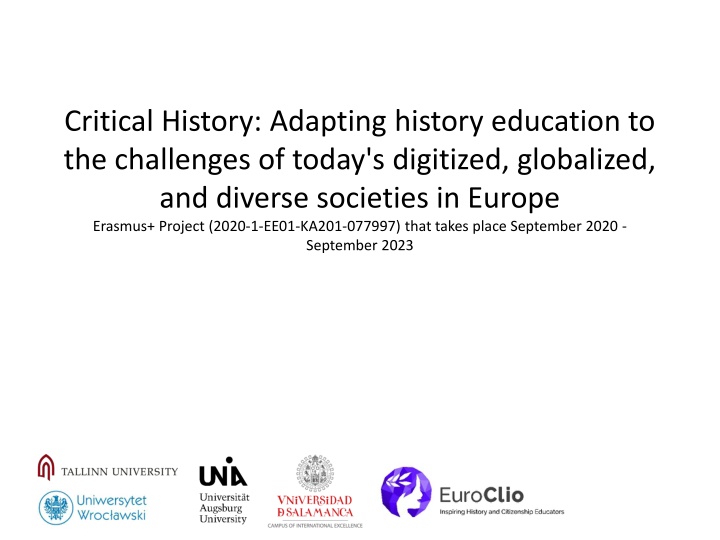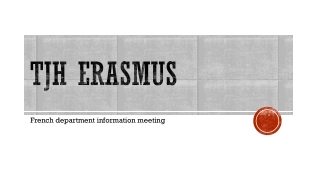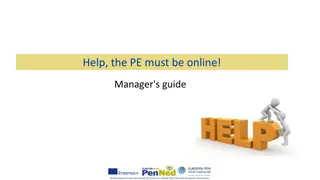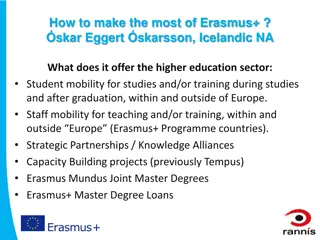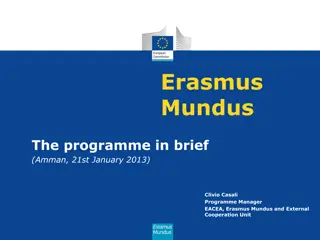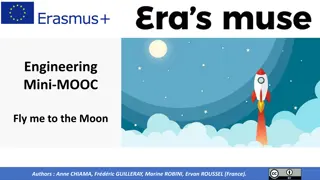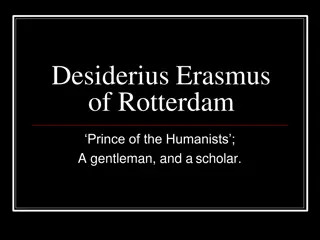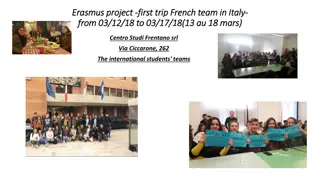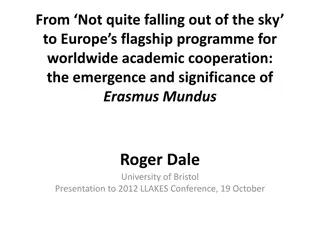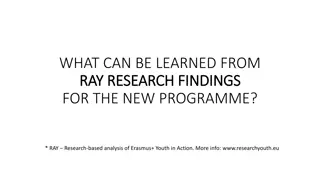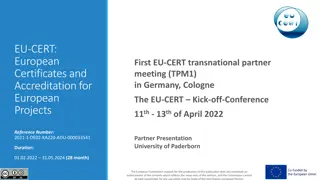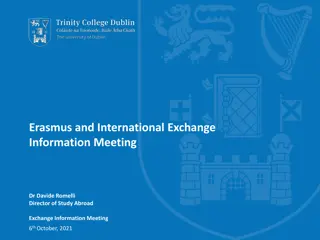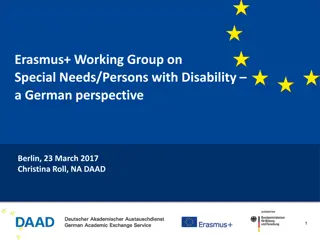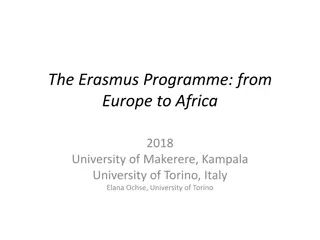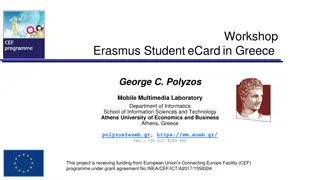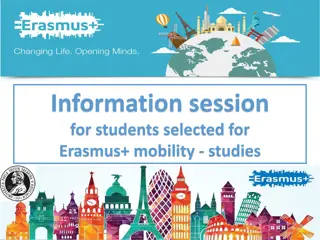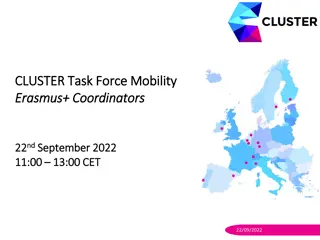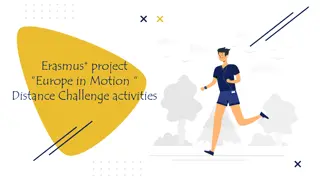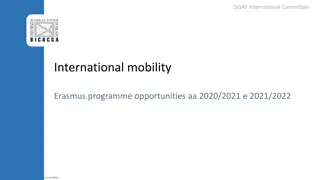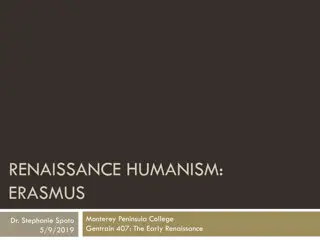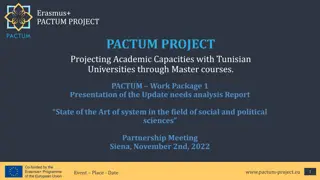Enhancing History Education for Today's Societal Needs: Erasmus+ Project 2020-2023
This Erasmus+ project aims to adapt history education to modern challenges by preparing history educators to teach in a way that meets societal demands and incorporates the latest in history didactics. Partners focus on heritage, global dimensions, public history, and the role of the internet. Results include field analysis, a study guide in multiple languages, professional development, and enhanced networking within the history education community.
Download Presentation

Please find below an Image/Link to download the presentation.
The content on the website is provided AS IS for your information and personal use only. It may not be sold, licensed, or shared on other websites without obtaining consent from the author.If you encounter any issues during the download, it is possible that the publisher has removed the file from their server.
You are allowed to download the files provided on this website for personal or commercial use, subject to the condition that they are used lawfully. All files are the property of their respective owners.
The content on the website is provided AS IS for your information and personal use only. It may not be sold, licensed, or shared on other websites without obtaining consent from the author.
E N D
Presentation Transcript
Critical History: Adapting history education to the challenges of today's digitized, globalized, and diverse societies in Europe Erasmus+ Project (2020-1-EE01-KA201-077997) that takes place September 2020 - September 2023
Partners and topics Tallinn University Heritage in history education Universitaet Augsburg Global dimensions of national history and post-colonial history Uniwersytet Wroclawski Public history and history education Universidad De Salamanca The role and influence of the internet in history education Euroclio-De Europese Vereniging Voor Geschiedenisonderwijsgevenden
The project's objective To ensure that history educators who receive their initial teacher training at one of the partner universities in the consortium are prepared to teach history in a way that responds to societal needs, and is based on the latest insights in history didactics.
What results are expected? 1. the field analysis, including a literature review and a collection of practices; 2. a study guide, with learning activities and teaching methods and tools on four topics in English, Estonian, German, Polish and Spanish; 3. the professional development and professional networking of the people who are actively involved in the project; 4. closer working relations between various professional organisations in the field of history education, such as the International Society for History Didactics (ISHD), EuroClio, the International Federation for Public History (IFPH) and the History Educators International Research Network (HEIRNET).
